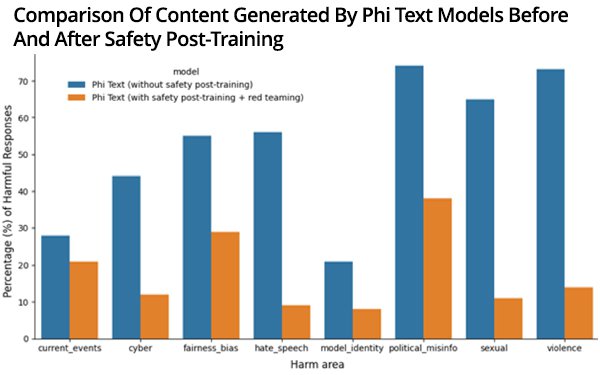
Microsoft has introduced a
mini artificial intelligence (AI) model that the company says can outperform models twice its size across a variety of benchmarks that evaluate language, coding and math.
The Tuesday announcement of Phi-3 Mini, the first of three small models that the company plans to release, is being
touted as a cost-effective, small AI model that can perform tasks such as content creation and create social media posts while using smaller amounts of data.
Small AI models like Phi 3 are known for working well on small devices, but it also can help advertisers, brands and businesses using this type of model to summarize main points of a long
document, extract relevant insights and industry trends from research reports, or Microsoft wrote in a post.
advertisement
advertisement
Microsoft is not the only company that is building small models.
Google’s Gemma 2B and 7B is focused on language and chatbots, and Anthropic’s Claude 3 Haiku is designed to read and summarize lengthy research papers. Meta’s Llama
3 8B can assist with coding.
The report shares information on the "harmful response" percentages by Microsoft AI Red Team between phi-3-mini before and after the safety alignment.
The harmful response percentages in the chart of the research report are inflated numbers, according to researchers, as the red team tried to induce Phi-3 Mini in an adversarial way to generate
harmful responses through multi-turn conversations.
The chart looks at current events, fairness and bias, and many more factors.
Phi-3 Mini measures
3.8 billion parameters and is trained on a data set much smaller than large language models like GPT-4.
It is now available on Azure, Hugging Face, and Ollama.
Microsoft plans to release Phi-3 Small, with 7B parameters, and Phi-3 Medium, with 14B parameters. Parameters in this manner refer to the number of complex instructions a model can
understand.
The more parameters a model is trained on, the more capable it is of delivering the kinds of results that advertisers and developers would want.
The more
parameters an AI model has, however, the more power and energy it requires to deliver results.
Microsoft today also said it has partnered with Cognizant to expand the adoption of
generative AI (GAI) solutions by enterprises, with the companies hoping to make Microsoft’s Copilots available to millions.
“We’re committed to helping them harness
the power of generative AI at scale, and Microsoft Copilot is a proven tool that can bring transformative gains, unlocking talent and potential in ways we can only imagine,”
says Cognizant CEO Ravi Kumar S.
As part of the partnership, Cognizant purchased 25,000 Microsoft 365 Copilot seats for Cognizant associates, along with
500 sales Copilot seats, also known as licenses, and 500 Services Copilot seats to improve productivity, streamline workflows and transform customer experiences.